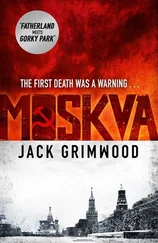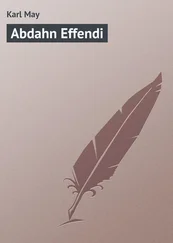“Excellency,” she said hastily.
Ashraf Bey scowled. In the study behind him were St. Cloud, the Graf and Senator Liz, representing Paris, Berlin and Washington. All three had an opinion on the final sentencing of Effendi, all firmly held, all different. None of them wanted to give way on a single point. Everything, it seemed, but absolutely everything was a matter of principle.
Execution would play badly to the world’s press. So they wanted Raf to agree to life imprisonment at Ras el-Tin. And this was before a man had even been found guilty . . .
Hani slipped her hand from Madame Syria’s grasp, stepped politely but firmly around Zara, who was blocking her from Raf’s sight and stopped directly in front of her uncle.
“Solved it,” she told him, her voice little more than an intense whisper.
“Solved what?” Raf demanded.
“The riddle, obviously!” Hani’s face exploded into a grin, then that was gone, leaving Raf looking at a quiet, satisfied smile. This too vanished as Hani noticed something on the study table behind Raf.
“Baklava!” said Hani in a tone something between outrage and admiration. “You’ve got fresh baklava!” Without waiting to be invited, actually without appearing to notice Raf’s other guests at all, she slipped through the door and into his seat.
“Hani.”
Politeness said not to answer with her mouth full, so Hani waited.
“My niece,” Raf explained and watched three faces shift their attention from him to the small girl and back again.
“There’s a ship coming into harbour,” said Hani when her mouth was empty, which took a while because Hani ostentatiously chewed the mouthful thirty-two times, as her late Aunt Nafisa had instructed. “It’s the SS Jannah. ”
Tewfik Pasha had decided in advance what he intended to say and had prepared himself to overrule any objections. The talking box that Zara’s brother found in the bilges had proved invaluable on both counts. An atelier on board the SS Jannah had spent the previous twelve hours hand-stitching a second jacket to specifications so strict that the Khedive had rejected the first attempt as inadequate.
The coat was modelled on a jacket his father had worn when he married the Khedive’s mother, as seen on endless reruns of Lives of the Rich and Infamous. Cut from black silk and featuring minimal embellishment, the jacket’s only decoration had been a thin piping of gold around its high collar. Unfortunately, the current Khedive’s replica was both narrower across the shoulders and less tailored at the hips, although the atelier had worked hard to hide that fact.
At the suggestion of Colonel Abad, the Khedive had shaved away most of his beard, removing everything except the ghost of a goatee and the faintest trace of moustache. And, helped only by Avatar, he’d showered, dried himself and climbed into the immaculately sewn costume; because that’s what his new clothes were, a costume, the accretion of society’s ideas on how a Khedive should look.
On Tewfik Pasha’s head was a tarboosh. Over his heart was pinned a simple enamel-and-gold star. The order of the Imperial Crescent, first class. Even his choice of decoration carried a message. It was there to remind the waiting cameras that his ultimate allegiance (such as it was) went to Stambul.
And there would be cameras, dozens of them. That much was obvious from the myriad feeds he’d scanned as the SS Jannah steamed east towards El Iskandryia. A major city without electricity, without working computers, landlines, even cookers and cars. Its very nakedness drew the media like wasps to a honey trap. As the Khedive suspected his new governor intended it to . . .
Standing on deck with the injured Avatar slightly behind him, as protocol demanded, Mohammed Tewfik Pasha watched men the size of ants grab a stern rope and carry its giant loop to a waiting bollard. It took eight men to lift one rope and still they staggered under its weight.
When the rope was in place, a winch on the stern tightened, pulling the liner forward as a rope at the bow was loosened, removed from its bollard by another group of ants and carried forward, to be fixed around a bollard waiting up ahead. At which point the forward winch began to tighten. It was a laborious way to coax a liner along the edge of the Silsileh and perhaps there were easier ways to dock on Iskandryia’s great seawall, but this was the SS Jannah .
Stars, starlets and actual icons, whole galaxies of famous names were aboard. At least they were according to the Hello International . A panoply was the term they used. The reality was rather different. Late October/early November was definitely out of season and the constellation was confined to three minor genome-proteone heiresses, the elderly founder of LearningCurve GmB, two balding Bollywood lotharios, the Van der Bilt girl and him . . .
Ruler of a stricken city besieged on all sides by more-powerful nations who claimed to have only Isk’s best interests at heart. Nations who, according to all the newsfeeds, still demanded that he give up Iskandryia’s leading industrialist. And for what? To prove Isk was fit to join their nest of vipers.
Colonel Abad was right. It was an imposition too far.
Tewfik Pasha was scowling ferociously as he let an automated gangplank carry him down to the waiting dock, a fact that registered with everyone but him. He was too busy staring out over his silent city, looking beyond the crowded Corniche and the odd-angled pyramid of the bibliotheka to the green of Shallalat Gardens and a distant baroque palace that had, a century back, been the winning entry to the competition to design Iskandryia’s railway terminus.
His scowl had everything to do with coming home and the state of his city. Nothing at all to do with the sight of Zara bint-Hamzah standing near the bottom of the gangplank or the fact she gripped the hand of Ashraf Bey as if her life depended on it.
Or was that her father’s life?
“Your Highness,” she said, dropping Raf’s hand.
Tewfik Pasha nodded to the girl and let go his scowl. But even as he fumbled for something appropriate to say, Zara’s attention shifted away from him to her half brother and something passed between the two as silent as thought and swift as electricity. Only then did she notice Avatar’s injuries.
“I have a statement to make,” announced the Khedive loudly.
Camera crews surged. At least that was the appearance. What really happened was that the police cordon relaxed enough to let journalists flow through strategic gaps. They were getting good at that.
Cameras whirred, flashguns fired and questions were shouted.
And all the while the Khedive just stood there, counting down in his head from ten, elegant but slight in a simple black uniform. His face utterly impassive as the chaos broke around him. This was his version of courage. A refusal to engage immediately, to do from instinct what would please everyone else.
“You,” he said finally, reaching zero.
“Your Highness . . .” Having been chosen, the Englishwoman with the lacquered blonde hair appeared uncertain which question to ask first. Too many needed answering, half of them involving the huge vessel moored behind him.
“How did you . . . ?”
“I own the SS Jannah .”
She looked at him, the rest of her question already dead on her lips.
“It belonged to my father,” the Khedive said with a shrug. “Utopia Lines merely lease the vessel.” He could tell them how absurd he found this idea, that such an object should be owned by one person, but now didn’t seem to be the time. If possessing a ship was absurd, then how much more so to possess a city, even a broken one . . .
Читать дальше












